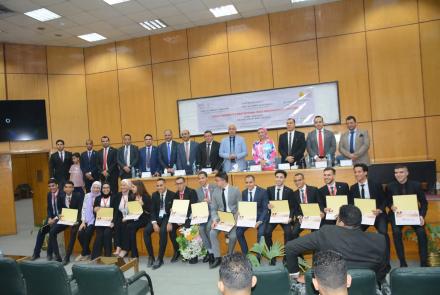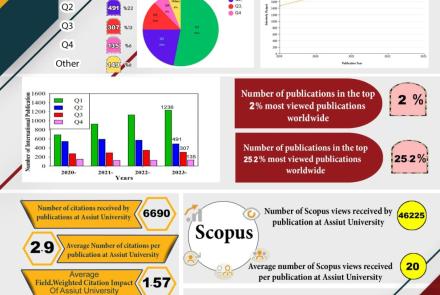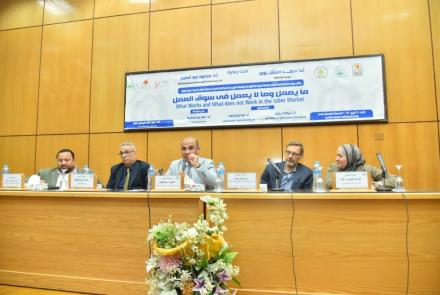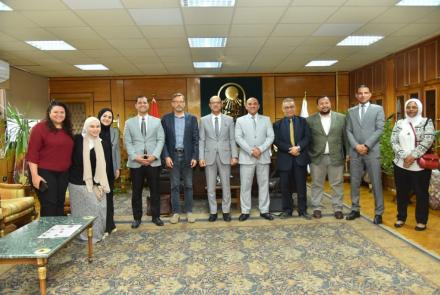In his keynote speech at the opening proceedings of the Sixth Annual Conference
of the Egyptian Society of hepatic viruses, organized by the Department of
Gastrointestinal Endoscopy Faculty of Medicine, Assiut University, University
President, Dr. Mostafa Kamal asserted the importance of adopting an integrated
strategy to eliminate and reduce the rate of Hepatitis infection in Egypt. To
this end, he advocates the integration of roles and co-ordination of efforts and
nationwide orientation since the disease represents a risk to the structure of
the nation, the health of its citizens, and the safety of future generations.
Professor Kamal also emphasized the effective impact of the University and its
facilities on the prevention, treatment and medical education in Upper Egyptian
provinces.
On his part, Dr. Abdel Ghani Abdel Hamid, General Secretary of the conference
indicated that the problem of Hepatic infection occupies the first rank among
infectious diseases in Egypt. He also said that a report of the United Nations
has indicated that the number of infected patients has reached about 12 million
people representing 18% with high annual increase placing Egypt in the lead of
world countries suffering from the disease. Dr. Abdel Hamid pointed out that
the risk of the disease lies in its complications that reach utter liver
cirrhosis or liver tumors. He also indicated that the ratio of prevalence varies
among Egyptian provinces as it reaches about 28.4% in the Delta provinces, 26.5%
in Central Egyptian provinces, 19.5% in Upper Egyptian provinces, 8.2% in Cairo,
and about 5.9% in Alexandria.
Dr. Medhat Nasr, Conference Chairman indicated that Hepatitis (HCV) represents a
national problem that necessitates coordination of efforts to limit viral
spread. Prof. Nasr pointed at the inability of hospitals to accommodate the
increasing numbers of infected patients and the limited methods of prevention
including the role of Assiut University and the Department of Endoscopy in
vaccinating students and hospital staff in an attempt to eliminate the spread of
the disease. Prof Nasr also said that HCV infection can be transmitted through
the mouth, teeth and blood transfusions.
Dr. Mohammed Adawy Nafea, Honorary Chairman of the Conference, said that in most
causes of infection, HCV spread most likely because of several behavioral
habits in Egyptian society such as using shaving tools, blades, syringes,
surgical instruments and blood transfusions; a matter that renders both patients
and the government responsible for the spread of the disease. Prof Nafea
indicated that budgets now are insufficient for the confronting the disease and
its serious developments complications.
Scientific Conference on Hepatitis Assiut University
 Do you have any questions?
Do you have any questions? 





